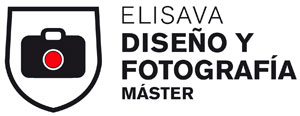MA Photography & Design at Universidad Pompeu Fabra (UPF) / ELISAVA School of Design and Engineering of Barcelona
Pioneering training for professionals in the XXI century
The MA Photography & Design course at ELISAVA School of Design and Engineering of Barcelona is a taught, practice-based programme, which attracts students from around the world and approaches photography as an open visual discipline in where you are encouraged to confidently produce complex and extended photographic projects as well as engage with contemporary, critical, experimental and speculative approaches to photography. The course places an emphasis on innovation, experimentation, and intellectual and practical enquiry in where students are encouraged to actively engage with contemporary photographic art practice through publication, exhibition and participation in live projects.
The course offers a dynamic and exciting environment for studying the practice of photography enabling students to acquire advanced photographic skills and apply them to complex, self-generated projects, and engaging with different technical and theoretical practices about the image. This characterises our committed study at postgraduate level, bringing photographic education up to date with contemporary photographic practice. It also pays attention to the dissemination of photographic work, exhibition & publication and focuses on the reasons by which the meaning of an image is shaped by its use and contextualization.
Drawing on the expertise of a diverse range of professional photographers, guest lecturers and technical advisers, you will enhance your knowledge and skills through a series of photographic projects using practice-led research and supportive written work. By the end of the MA you should be able to produce challenging cutting edge contemporary work that uses photography effectively, exploring beyond the medium specific boundaries in order to produce innovative solutions to new arenas and methods of display and delivery.
To engage with real audiences, generating new challenging narratives about the nature of the work itself and its relation with changed modes of production, dissemination and consumption.
To provide professionals specialising in the area of photography with multidisciplinary training so that they can use photography as a tool for conveying concepts and ideas.
On successful completion of the course students will have:
Initiated and implemented an individual self-directed research project using research methods, materials, techniques and processes appropriate to design practice.
Demonstrated a thorough understanding of, and critical engagement with, the relevant practical, theoretical and professional contexts of their project and be able to situate and interpret their own work within this context.
Demonstrated an ability to employ analysis, synthesis and evaluation to a range of external sources and to their own practice to inspire and inform the generation, development and application of original ideas.
Demonstrated a reflective and evaluative approach to their own work which allows them to act independently in identifying, implementing and sustaining individual research and practice at a professional level.
Demonstrated an ability to communicate complex and speculative concepts, methods and proposals effectively in spoken, written and visual forms.
Identified the potential for their work within specific professional contexts and developed appropriate communication skills for engagement with this audience.
Demonstrated an ability to use photography as a tool for communicating effectively concepts and ideas.
ELISAVA Escuela Superior de Diseño e Ingeniería de Barcelona
La Rambla 30-32
08002 Barcelona
Phone. + 34 93 317 47 15
postgrado@elisava.net
Course leader: Pedro Vicente, pvicente@elisava.net

 Español
Español